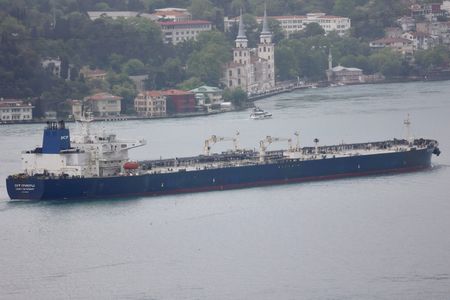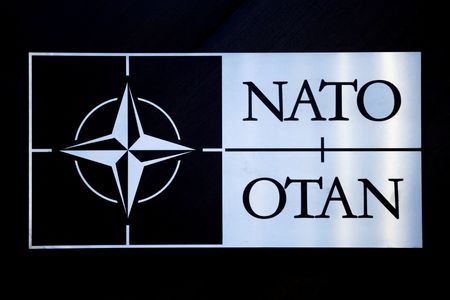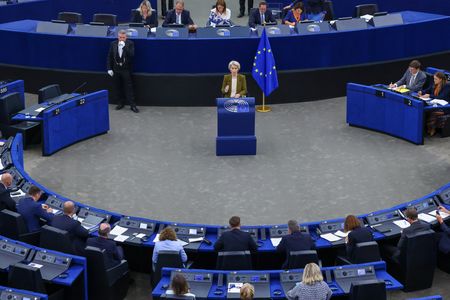By Kate Abnett and Julia Payne
STRASBOURG (Reuters) – The European Union is considering a faster phase-out of Russian fossil fuels as part of new sanctions against Moscow, European Commission chief Ursula von der Leyen said on Wednesday after U.S. pressure to stop buying Russian oil.
EU officials are in Washington to discuss coordination on further Russia sanctions. While the EU and U.S. consider tougher measures to reduce Moscow’s revenue, however, internal divisions and the need for global support raise questions over how effective such steps will be in isolating Russia.
U.S. President Donald Trump, seeking to end Russia’s war with Ukraine, told European leaders last week to stop buying oil from Russia, a White House official said. He has also urged the EU to hit China and India with up to 100% tariffs to increase pressure on Moscow.
In her State of the Union address to the European Parliament, von der Leyen said that the EU is “looking at phasing out Russian fossil fuels faster, the shadow fleet and third countries” as part of the 19th package of sanctions now being prepared.
The Kremlin said on Monday that no sanctions would ever force Russia to change course in the war in Ukraine.
The EU has already banned imports of seaborne crude oil from Russia – accounting for more than 90% of its Russian oil imports – and imposed a price cap on Russian oil trade.
It has targeted more than 400 tankers with sanctions in recent years to curb transportation of Russian oil by the so-called shadow fleet of ageing and unregulated vessels and is now negotiating legal proposals to completely phase out imports of Russian oil and gas by January 1, 2028, starting with new purchases and short-term contracts next year.
Sanctions could bring forward these deadlines, but Hungary and Slovakia have so far opposed such measures on gas imports, which they say would raise energy prices.
EU countries agree sanctions by unanimity while other legal proposals can be passed with support from a reinforced majority of countries.
Some analysts question the effectiveness of new sanctions.
“We have long maintained the view that Western powers need to have China and India on board with their sanctions for them to be truly effective,” said ICIS analyst Ajay Parmar.
“We also think it unlikely that the EU will realistically be willing to apply sanctions on India or China, nor the UAE, which has facilitated the flow of Russian oil since the war began.”
Hungary and Slovakia import around 200,000-250,000 barrels per day of Russian oil, equivalent to about 3% of EU oil demand.
EU purchases of Russian gas remain far bigger. Europe is expected to purchase about 13% of its gas from Russia this year, down from roughly 45% before Russia’s invasion of Ukraine in 2022, EU data shows.
(Reporting by Kate Abnett and Julia Payne; Additional reporting by Jonathan Saul and Seher Dareen in London; Writing by Nina Chestney; Editing by Jan Harvey and David Goodman)











